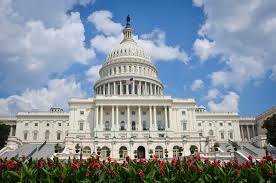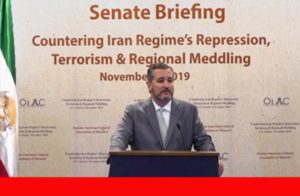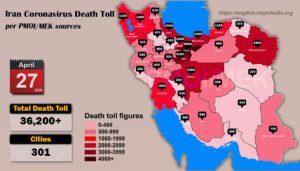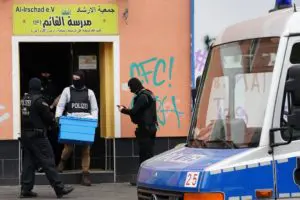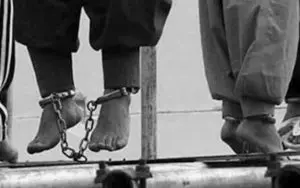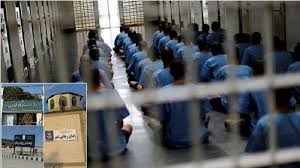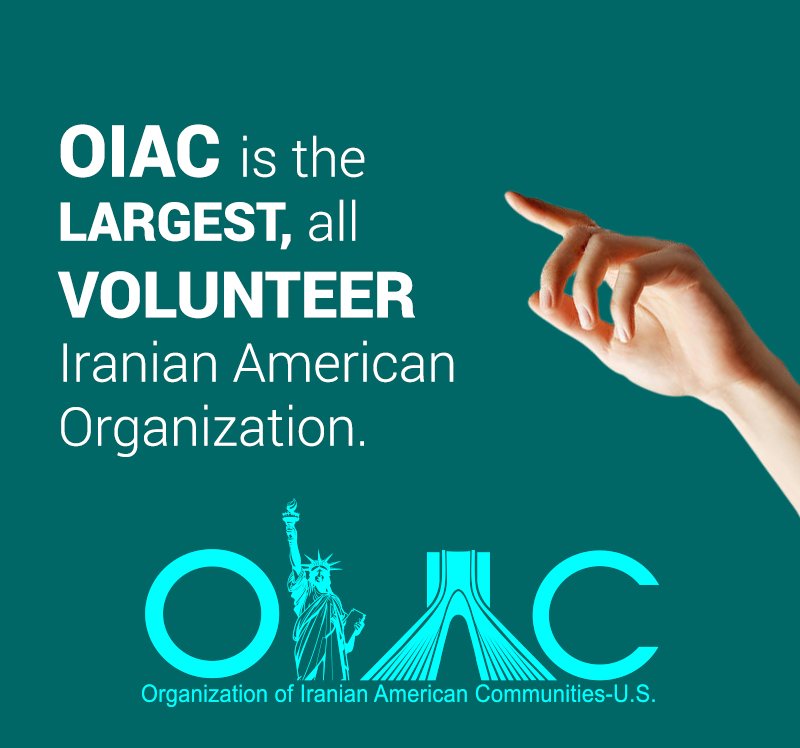Nearly 400 bipartisan lawmakers back extension of U.N. arms embargo on Iran
The Washington Times, May 4, 2020
A group of nearly 400 lawmakers on both sides of the aisle is calling on the Trump administration to extend a United Nations arms embargo on Iran, which expires in October.
In a new letter to Secretary of State Mike Pompeo, 387 bipartisan members of the House of Representatives on Monday urged the State Department to practice “robust diplomacy” in an effort to renew the embargo as well as travel restrictions on people aiding in Iran’s proliferation activities.
“We are concerned that the ban’s expiration will lead to more states buying and selling weapons to and from Iran,” the members wrote. “Additionally, states concerned about Iran’s malign activities may feel they do not have sufficient legal authority to stop transfers once the U.N. embargo expires.”
They urged the department to work with “allies and like-minded partners” to rally support to extend the embargo and “make clear to the international community that U.S. sanctions on Iranian arms transfers remain in place and will be fully enforced.”
The group was led by House Foreign Affairs Committee Chairman Eliot Engel, New York Democrat, and ranking member Michael McCaul, Texas Republican, as well as Reps. Stephanie Murphy, Florida Democrat, and Brian Fitzpatrick, Pennsylvania Republican, and encompasses more than three-quarters of all House members.
The current version of the arms embargo and arms export ban on Iran was adopted in 2015 in conjunction with a key nuclear accord between Iran and several world powers, including the U.S., and is set to lift on Oct. 18.
Click to read more
Sen. Cruz Applauds Trump Administration for Reported Move to Reimpose United Nations Sanctions on Iran
OIAC.org, April 27, 2020
HOUSTON, Texas – U.S. Sen. Ted Cruz (R-Texas), member of the Senate Foreign Relations Committee, today issued the following statement in response to media reports that the Trump administration is moving to invoke the snapback mechanism in United Nations Security Council Resolution 2231:
“I applaud the Trump administration for advancing toward finally and irreversibly ending the catastrophic Obama-Iran nuclear deal. I have long called for invoking the snapback mechanism, and it is absolutely clear that the United States is permitted to do so as an original participant state, as the State Department long ago concluded and confirmed to me in December. It is well past time to do so, otherwise in a few short months the U.N. arms embargo will expire and allow China to start selling billions of dollars of weapons to the Ayatollah. Iran has consistently been in violation of nuclear restrictions before, during, and after the negotiation of the deal, and the Ayatollah is right now systematically advancing toward a nuclear weapon. It is well past time to reimpose international sanctions.”
Sen. Cruz has led the fight against the deal since it was first negotiated. Since the U.S. withdrawal he has pushed for an end to oil waivers, an end to nuclear waivers, and for invoking the U.N. snapback mechanism to restore international sanctions on Iran. Specifically, Sen. Cruz:
In January 2020, following reports that Iran had announced it would cease abiding by restrictions outlined in the deal, Sen. Cruz, along with Sen. Lindsey Graham (R-S.C.) and Rep. Liz Cheney (R-Wyo.) called on the administration to invoke the snapback mechanism.
In November 2019, after Iran announced it would begin injecting uranium gas into centrifuges at the Fordow nuclear bunker, which the Nuclear Archives seized by Israel identify as part of Iran’s nuclear weapons program, Sen. Cruz called on the administration to invoke the snapback mechanism.
In October 2019, during a Senate Foreign Relations Committee hearing, Sen. Cruz questioned State Department Special Representative for Iran, Brian Hook, regarding U.S. authority to reverse the catastrophic Obama-Iran nuclear deal, which will lift the arms embargo and ballistic missile ban that had been previously imposed by the United Nations.
Click to read more
Iran: Coronavirus Death Toll in 310 Cities Exceeds 38,700
Maryam Rajavi: The clerical regime is trying to portray the situation as normal in a ridiculous comparison with European countries. Khamenei and Rouhani send people to the altar of Coronavirus. The lives of the people are of no value to them, and they do not help the people with the hundreds of billions of dollars of public property that are in the hands of Khamenei. The Security Council must intervene to save the lives of prisoners and secure their release, especially political prisoners. Prisoners’ lives are simultaneously threatened by the Coronavirus and the clerical regime.
NCR-Iran.org, May 3, 2020
The People’s Mojahedin Organization of Iran (PMOI / MEK) announced on Sunday, May 3, 2020, that the Coronavirus death toll has exceeded 38,700 in 310 cities across Iran. The number of victims in Khorasan Razavi is 2,920, Khuzestan 1,920, Alborz 1,460, Golestan 1,235, Sistan and Baluchestan 1,055, Hamedan 955, Lorestan 910, and Semnan 895.
In Langarud, the number of patients has increased in recent days, and Amini Hospital is facing a new wave of patients who need to be hospitalized. At least 26 people died in Ahvaz yesterday and hospitals are facing a shortage of space. In Rasht, hospitals have been instructed to refrain from hospitalizing patients as much as possible and to send them to their homes to make the situation appear normal. Meanwhile, today, Ahmad Hashemi, head of the University of Medical Sciences in North Khorasan told the official news agency, IRNA, “In the coming days, the number of people with Coronavirus … will be unprecedented.”
However, today, Hassan Rouhani said, “Mosques will be reopened tomorrow and Friday prayers will be held in 132 cities, which are virus-free and low-risk, … Even in the red sections, some businesses … will open to the extent that there would be no gatherings.”
Ali Khamenei and Rouhani have resorted to this criminal act while many regime officials and experts consider it dangerous in the current situation. Alireza Zali, head of National Coronavirus Combat Taskforce in Tehran, said, “We should consider Tehran a contaminated city … The declining statistics should not deceive us.” According to Shabakeh Khabar (News Network), on May 3, 2020, Shahabadi from University of Medical Sciences in Kermanshah, said, “Positive cases in the province are increasing day by day. We are concerned about the second wave of the Coronavirus outbreak. The virus will have a more severe impact in the second wave.”
Click to read more
Germany Hardens Ban on Hezbollah
The United States and Israel welcomed Berlin’s move to effectively outlaw all activity by the militant group and called on the rest of Europe to follow suit.
The New York Times, April 30, 2020
BERLIN — Germany on Thursday banned the Lebanese militant group Hezbollah from carrying out any activity on its soil and declared the group a terrorist organization, in a move, long sought by Israel and the United States, that deals a blow to its ability to operate in Europe.
Interior Minister Horst Seehofer ordered raids on four mosques and organizations suspected of being linked to Hezbollah, as well as some private addresses, as part of the measures.
“The activities of Hezbollah violate criminal law, and the organization opposes the concept of international understanding, whether in its political, social or military structures,” the interior ministry said in a statement.
Germany, like several other European countries and the European Union as a whole, had previously classed Hezbollah’s military wing as a terrorist group. But it had not applied the designation to the wider organization, which plays a powerful political role in Lebanon, with seats in both Parliament and the cabinet.
Britain classified all of Hezbollah as a terrorist organization last year, a hardening in policy that brought it in line with countries including the United States, Israel, Saudi Arabia and, within the European Union, the Netherlands.
In Germany last year, a group of lawmakers pressed Chancellor Angela Merkel’s government to take a tougher stance against the group by including its political organization in the ban to ensure that it would not be able to raise funds in Germany, citing the country’s special responsibility to Israel because of Nazi-era atrocities against Jews.
Hezbollah began as an underground militant group that waged an insurgency against the Israeli occupation of southern Lebanon, which ended in 2000. Since then, it has remained virulently anti-Israel while accumulating greater power in Lebanon and more recently in Iraq and in Syria, where its fighters intervened to help President Bashar al-Assad defeat rebels seeking to oust him.
Click to read more
Iran Protests & more



Iran Human Rights Monitor Monthly Report, April 2020
Iranian authorities have executed 32 individuals including juvenile offenders, members of ethnic minorities and drug related convicts.
Iran-HRM.com, May 3, 2020
The Iranian regime started a new wave of executions in April 2020, while the novel coronavirus has engulfed the country and spread to Iran’s prisons.
The authorities executed at least 32 individuals in 14 cities. The hanged include juvenile offenders and members of ethnic minorities. Several of those executed had involved in protests over prison conditions and the failure of the authorities to temporarily release them amid the Covid-19 pandemic.
The Iranian regime hanged an Iranian Kurdish political prisoner on April 11, in a prison in the city of Saqqez, in Kurdestan province, western Iran.
Mostafa Salimi, 53, was among some 80 prisoners who escaped from Saqez prison following a coronavirus jail unrest on March 27 amid the Covid-19 outbreak. He was rearrested a few days later.
Despite numerous requests from human rights advocates, Iran executed Shayan Saeedpour, a young convict who had been arrested as a juvenile. He was sentence to death for killing a person during a street fight when he was 17.
Saeedpour had also managed to escape from Saqez prison on March 27. He was rearrested a few days later.
Amnesty International said, “his execution may have been an act of retaliation by the local prosecution authorities, intended to deter other prisoners from attempting similar escape plans.”
Majid Esmailzadeh was also executed on April 18, in Ardabil prison northwest Iran. He was arrested in 2012 and was sentenced to death for murder he allegedly committed when he was under 18.
The UN High Commissioner for Human Rights Michelle Bachelet on April 22 condemned the executions of the two child offenders.
Among those put to death in April was Sina Mohammadi, who became the third execution of a child offender this month on April 23. The young man was reportedly arrested on charges of murder when he was a minor and sentenced to “qisas”.
Click to read more
Iran Law Enforcement Arrested 3,600 For ‘Coronavirus Rumors
Radio Farda, April 29, 2020
The Spokesman of Iran’s Armed Forces on Tuesday said Iran’s Law Enforcement Forces (Police) and the Revolutionary Guard’s militia arm (Basij) have arrested 3,600 individuals for “spreading rumors about coronavirus”.
Speaking on a live news program on Channel 2 of Iran’s state-run television Brigadier General Abolfazl Shekarchi warned that rumors are a means of psychological war against Iran and said those who lead rumor campaigns will be arrested.
“Our enemies are always hostile and have agents to further their wishes in our country but we had a very good performance in combating coronavirus in comparison with countries that claim to be advanced. You can see what disaster the United States is stuck in,” he said and claimed that “unlike” the United States and some other countries, the Iranian military is helping in the fight against coronavirus.
Brigadier General Shekarchi also claimed only four medical staff and some of the armed forces’ retired members who had been injured in the Iran-Iraq War (1980-1988) have died of COVID-19 so far. He did not reveal the number of chemically-wounded veterans who have been affected with coronavirus.
On March 6, Feyzollah Arabsorkhi, a reformist politician and a veteran of the Iran-Iraq War himself, said at least 18 chemically-wounded veterans suffering from respiratory complications had died of COVID-19.
Thousands of Iranian soldiers and civilians sustained various chemical injuries including acute respiratory problems during Iraqi chemical attacks. According to Iranian officials at least 65,000 are still under treatment and care for their chemical injuries.
Click to read more
Commentary: Iran’s COVID-19 Death Toll Could More Than Double, Thanks to its Government

On April 11, citizens of Iran began returning to work after an inexcusably brief nationwide lockdown. The coronavirus outbreak in Iran is the worst in the Middle East and possibly the world. Yet the Iranian regime moved more slowly and took less action that most others.
The official death toll has already exceeded 5,000, but credible sources like the main opposition National Council of Resistance of Iran (NCRI) have concluded that the actual number of COVID-19-related fatalities is between five and 10 times this number.
The brief lockdown notwithstanding, these dramatic estimates reflect gross mismanagement of the crisis from its earliest stages.
The regime failed to acknowledge local outbreaks until they had already taken firm hold of the country. The first public statements came on February 19, at which time two patients were confirmed to have died from COVID-19. But the NCRI has obtained documents from inside Iran showing that several individuals were admitted to Iranian hospitals in the last week of January with suspected coronavirus infections.
Considering that COVID-19 may incubate for up to two weeks before a patient begins to show symptoms, this means that the infection could have been spreading across Iran as early as the first week of January. This should have given the clerical regime extra incentive to take extreme measures once the first official tests came back positive and the first fatal cases were registered.
Instead, the late January hospital admissions were swept under the rug and the fatalities were downplayed in public speeches and state media. Two days after their announcement on February 19, regime officials continued to urge the highest possible turnout for parliamentary elections. Supreme Leader Ali Khamenei even declared participation in those elections to be a religious duty.
Click to read more
Donation
501 (c)(3) Tax deductible
Please,
Donate to Organization Of Iranian American Communities
Your donation will help OIAC advocates for a democratic, secular and non-nuclear government in Iran. Founded on the respect for human rights, gender equality, religious and ethnic tolerance, as wells as social, economic justice, and security for America. Our goal is to organize Iranian-American communities in the United States to promote these values.
Thank You,
http://www.oiac-us.com/donation/

